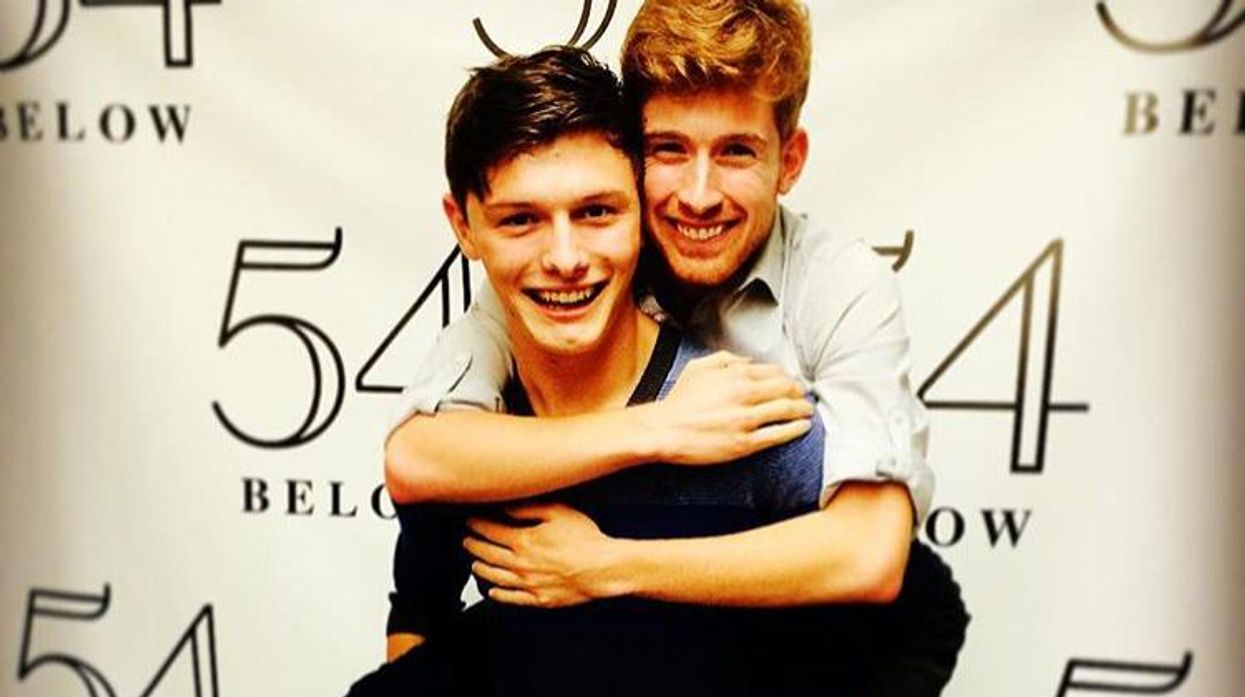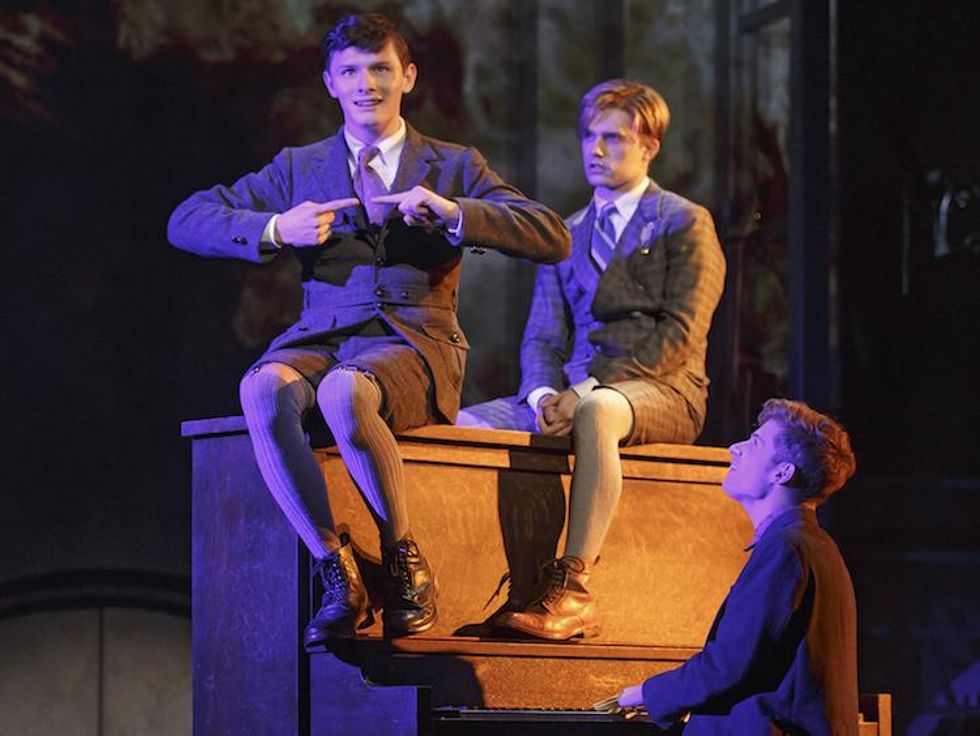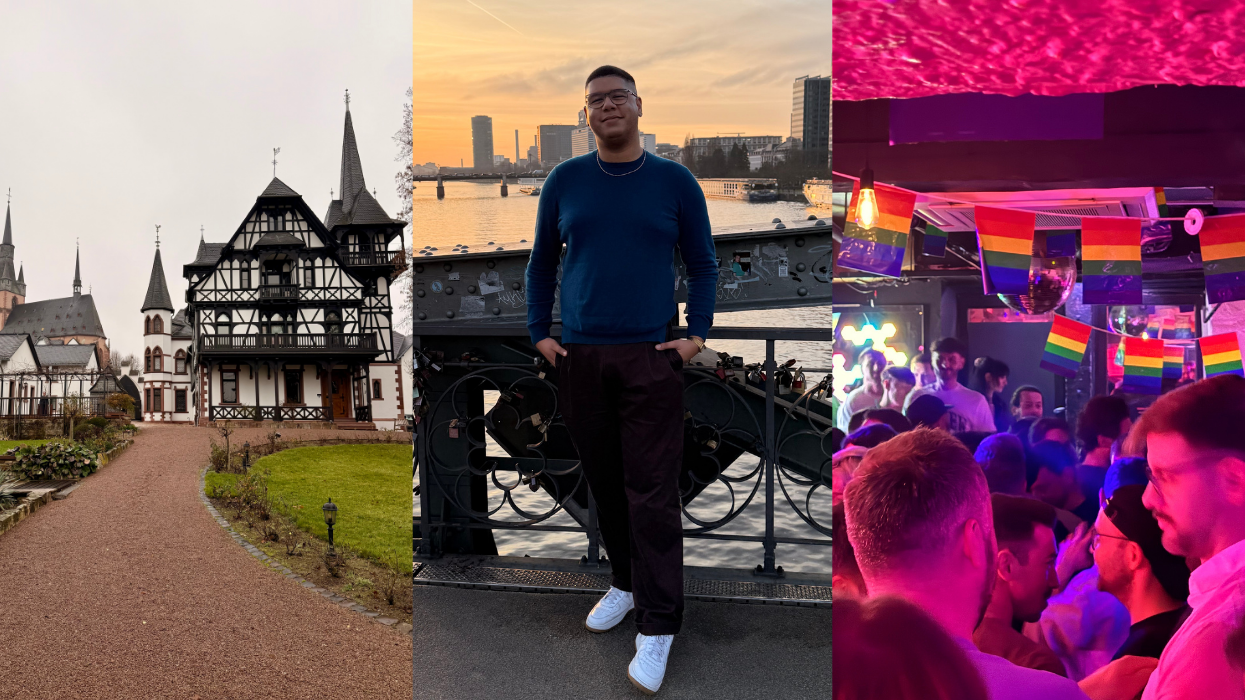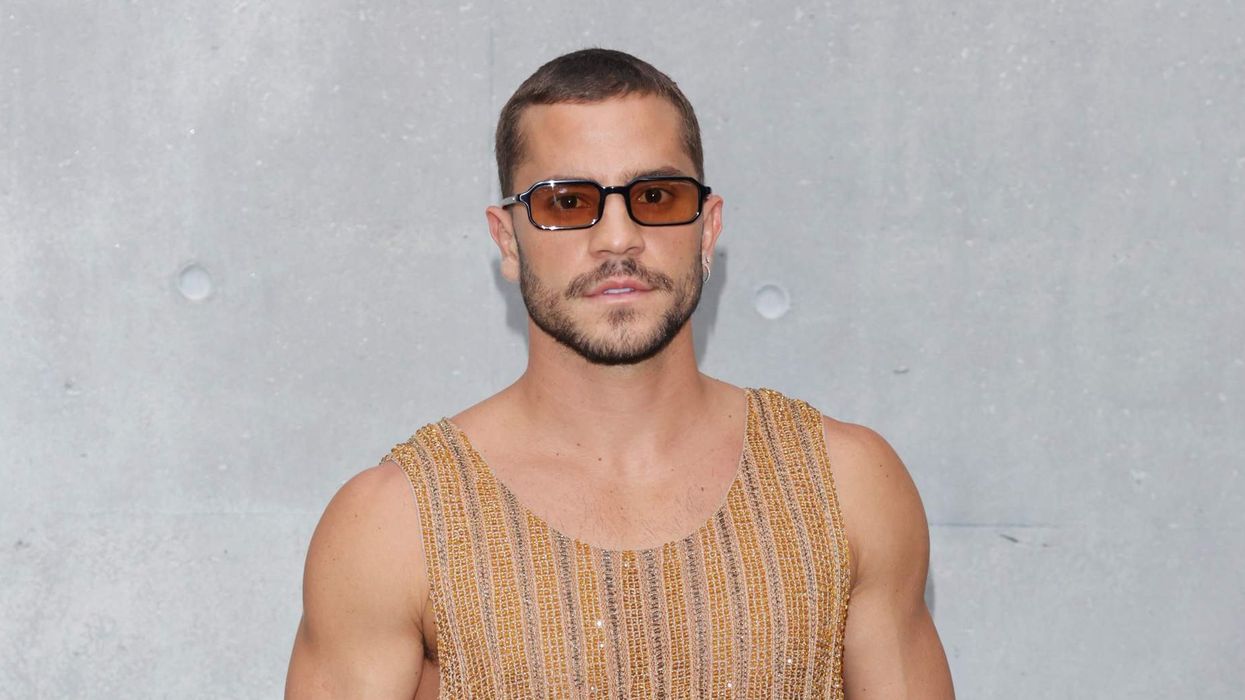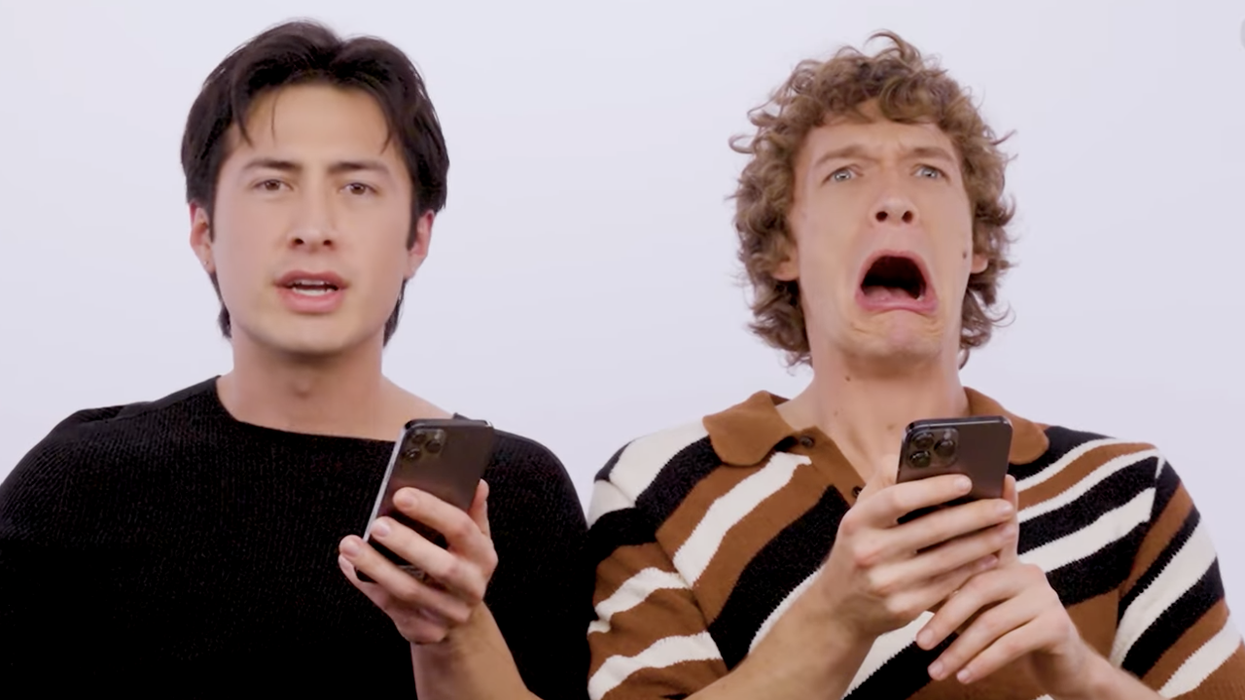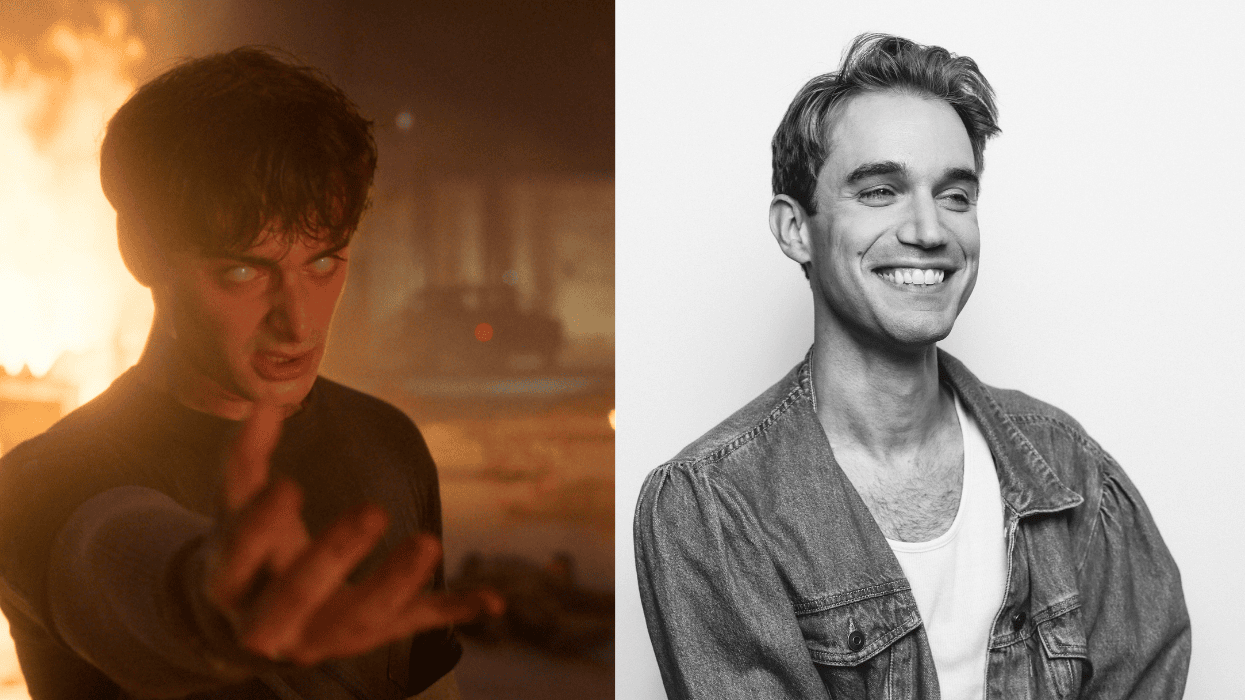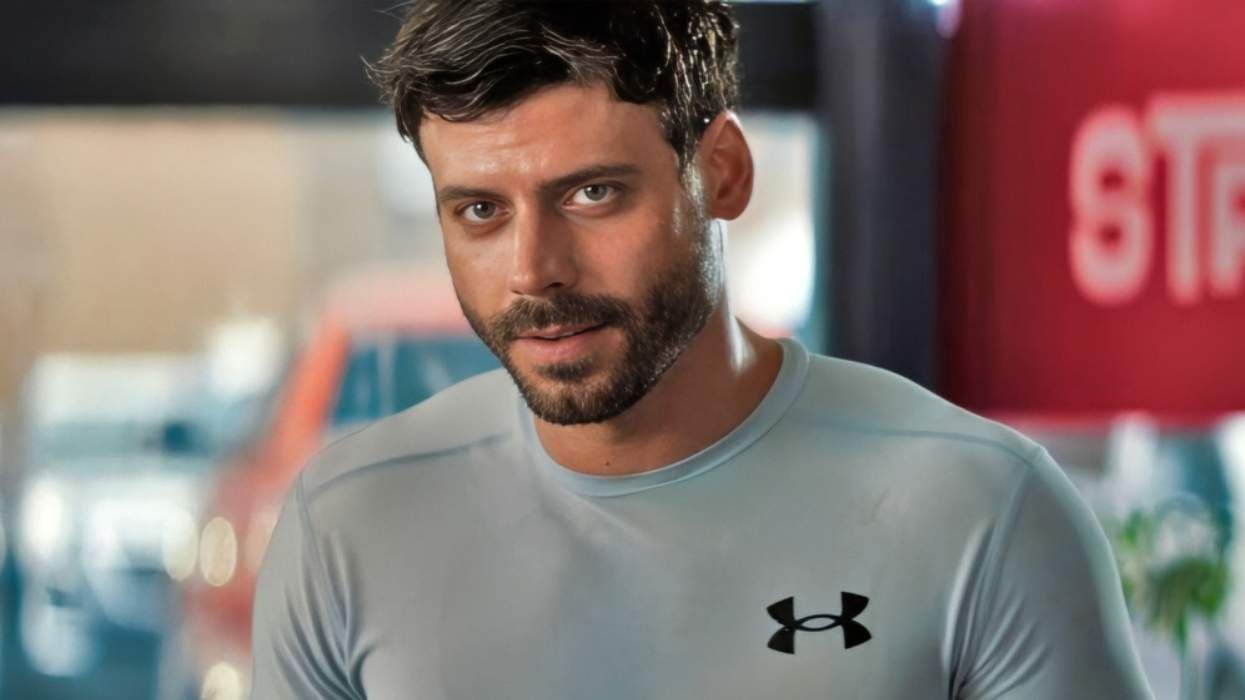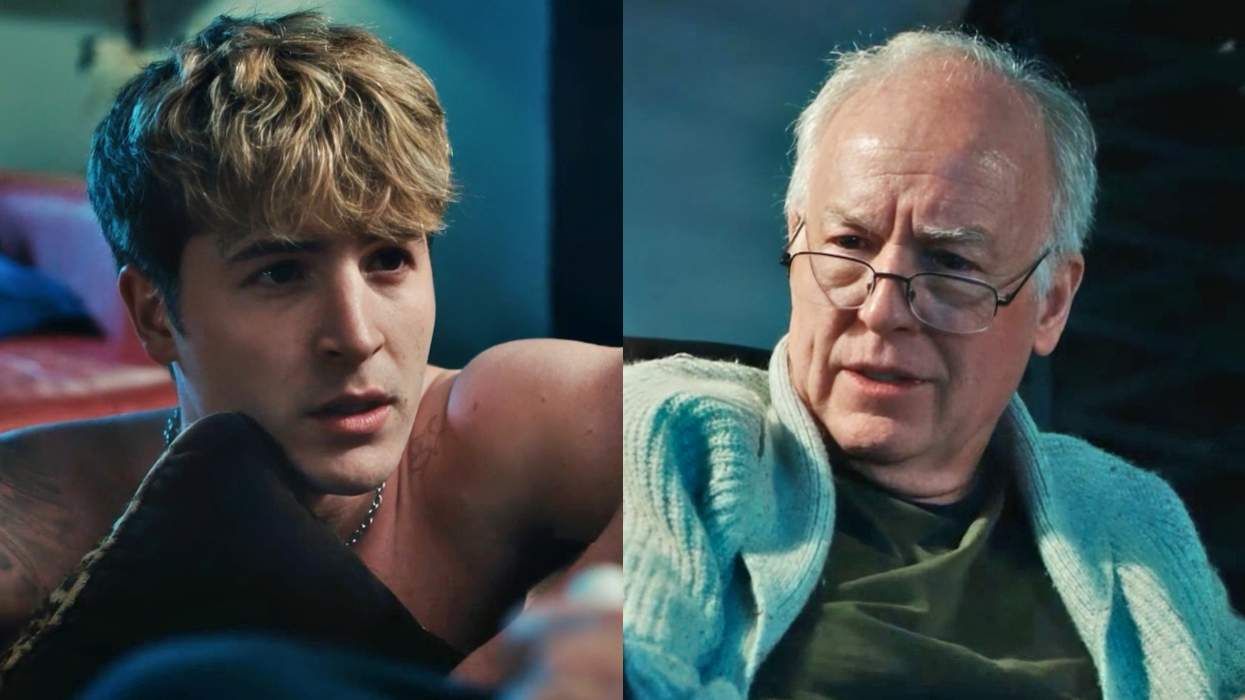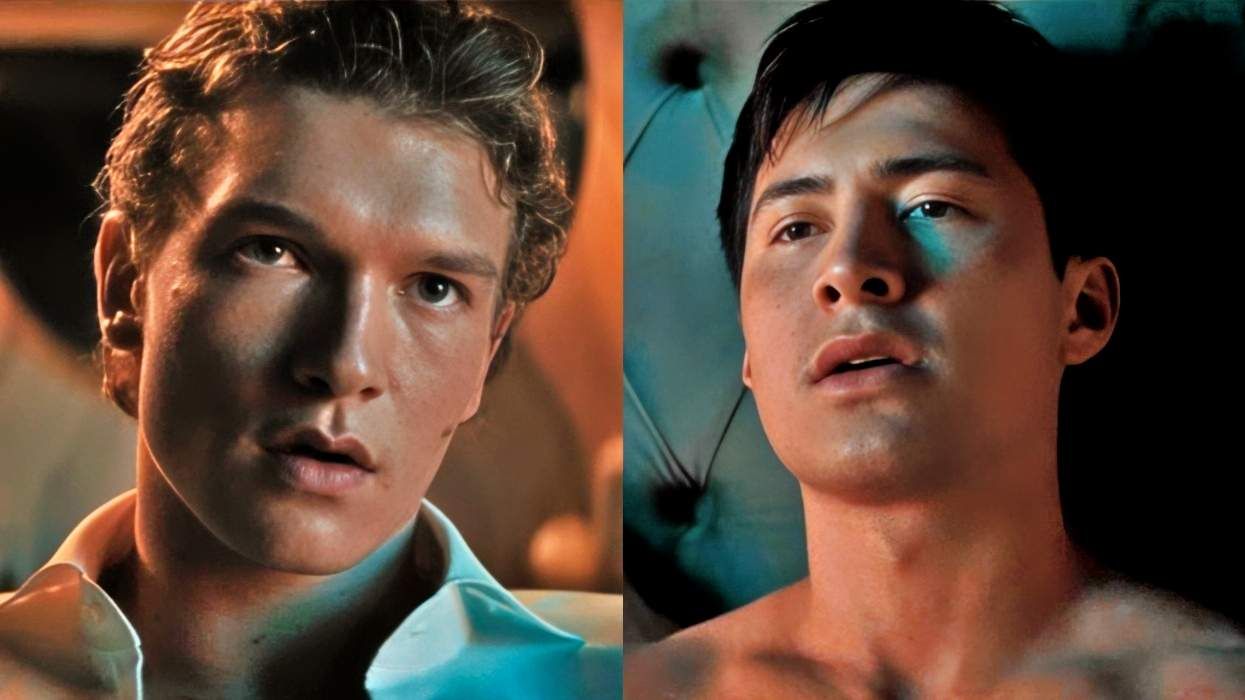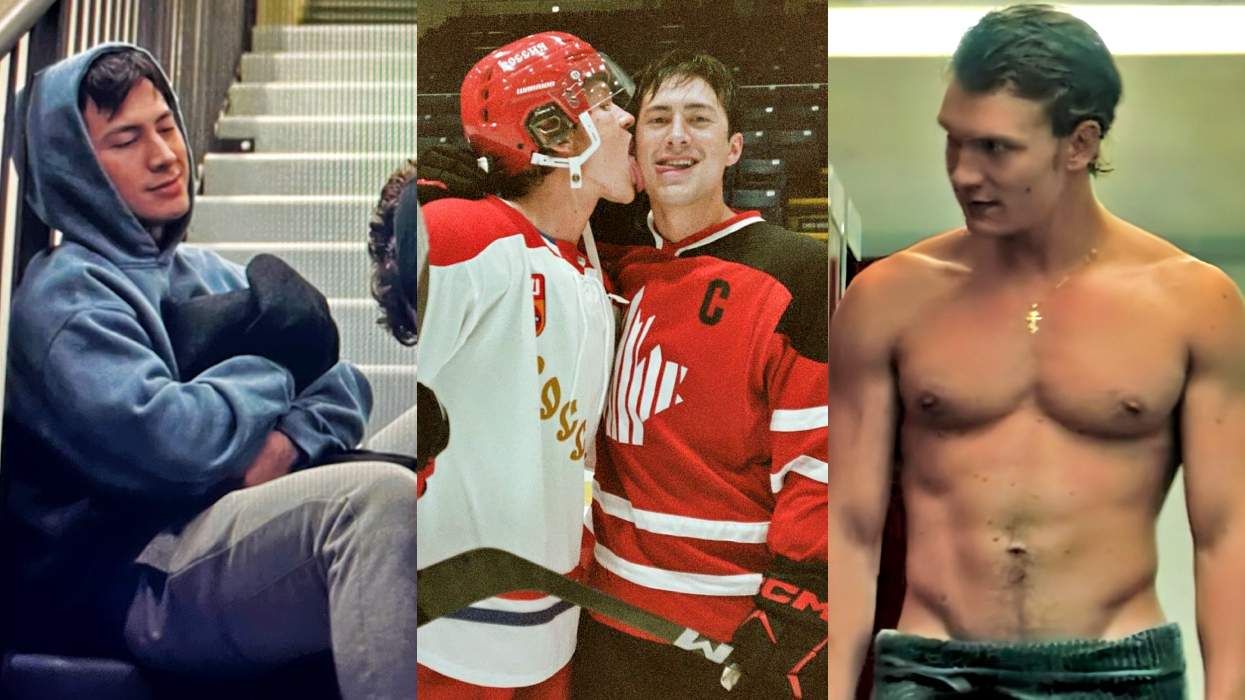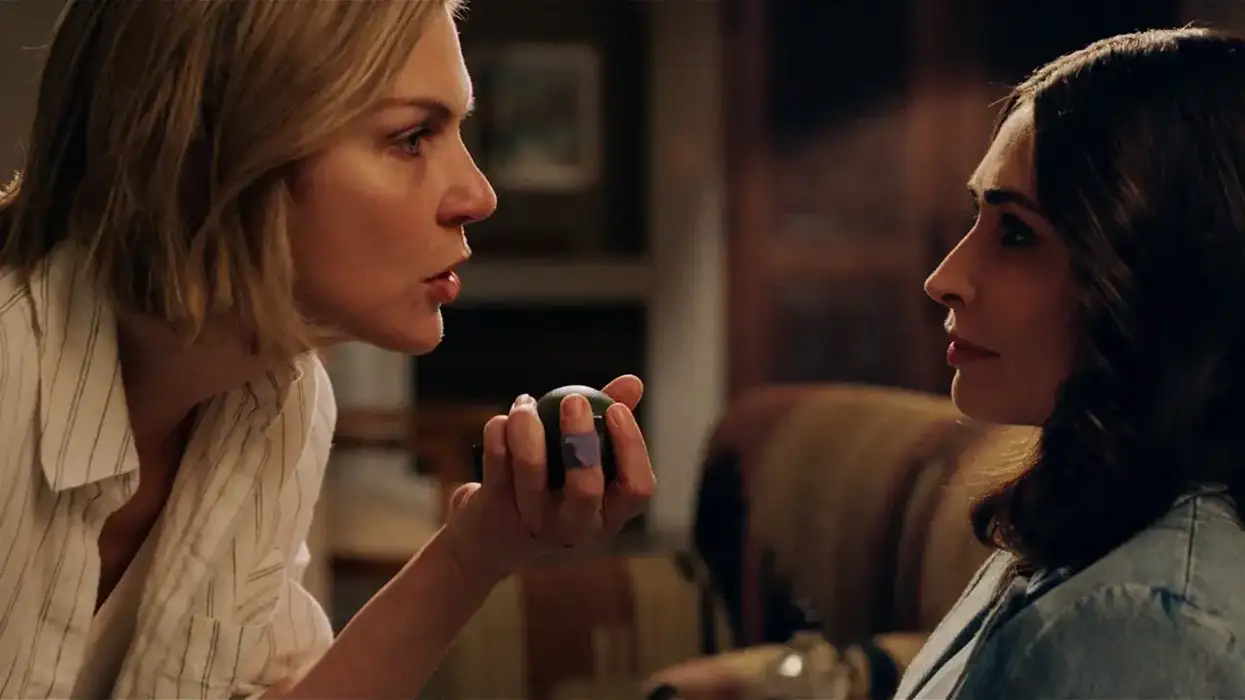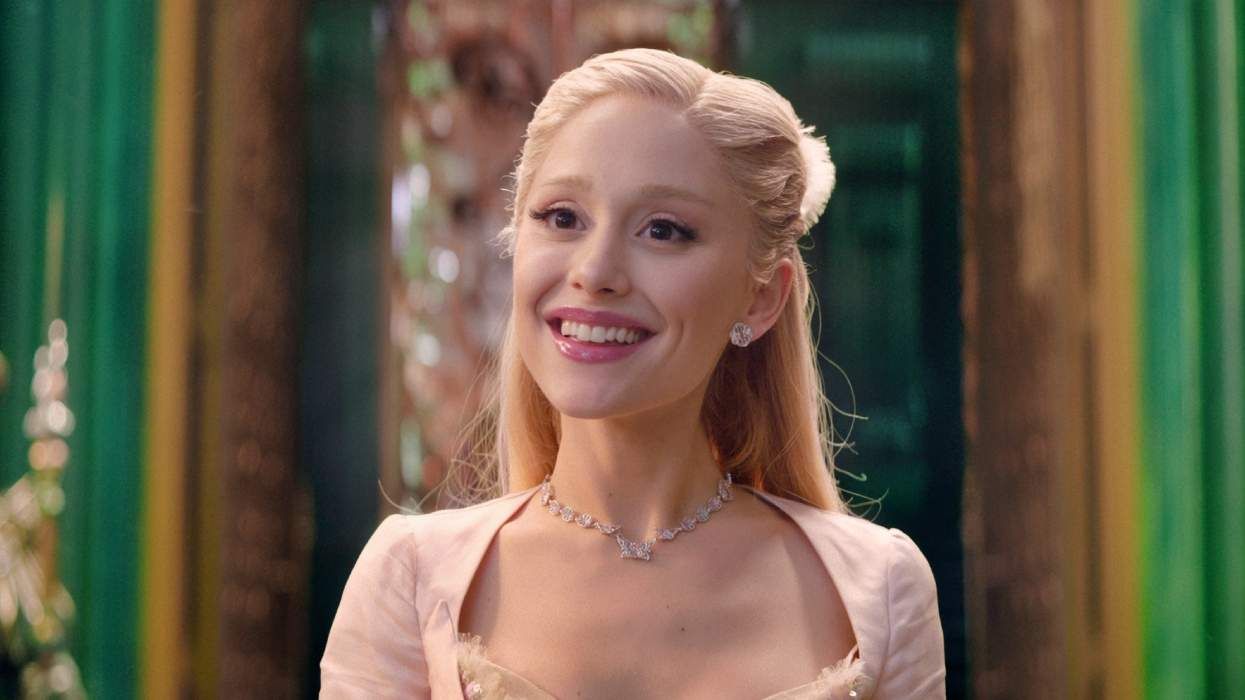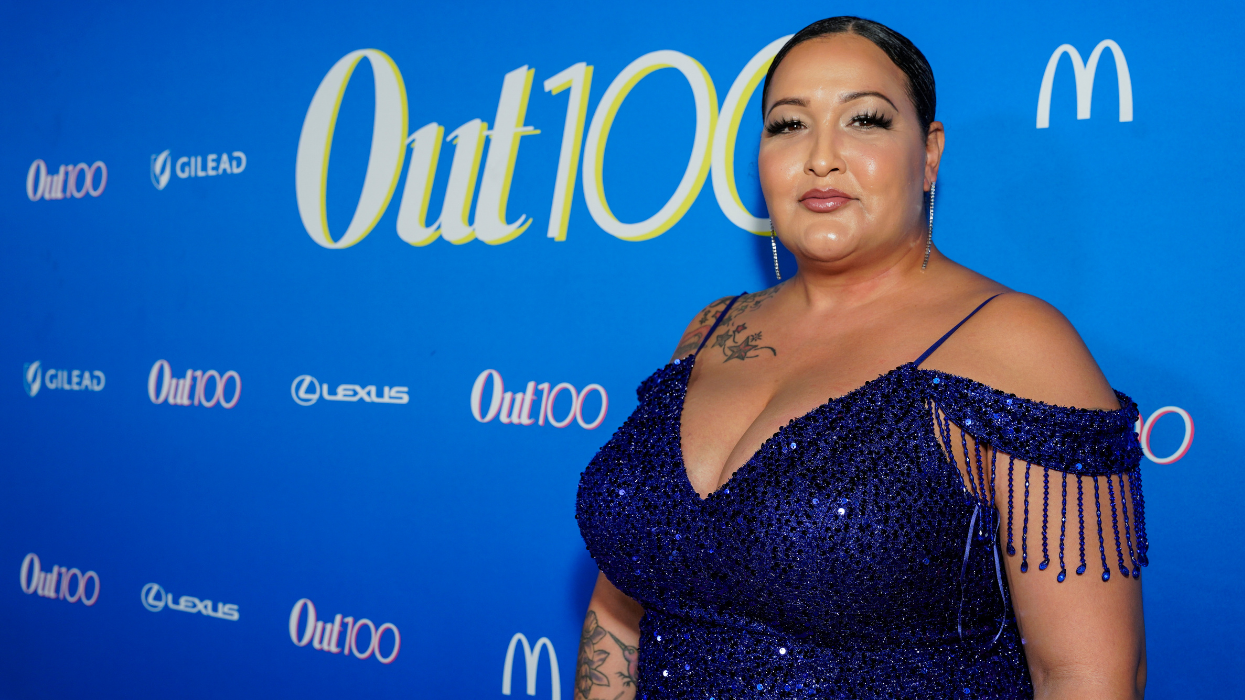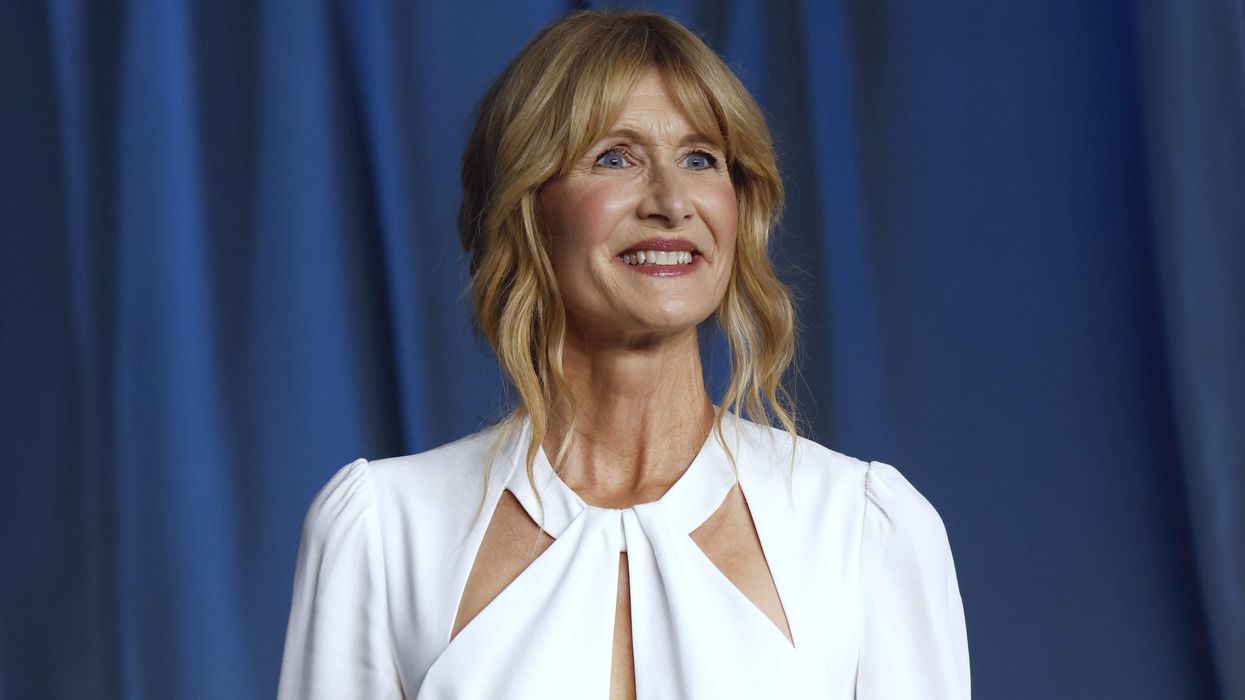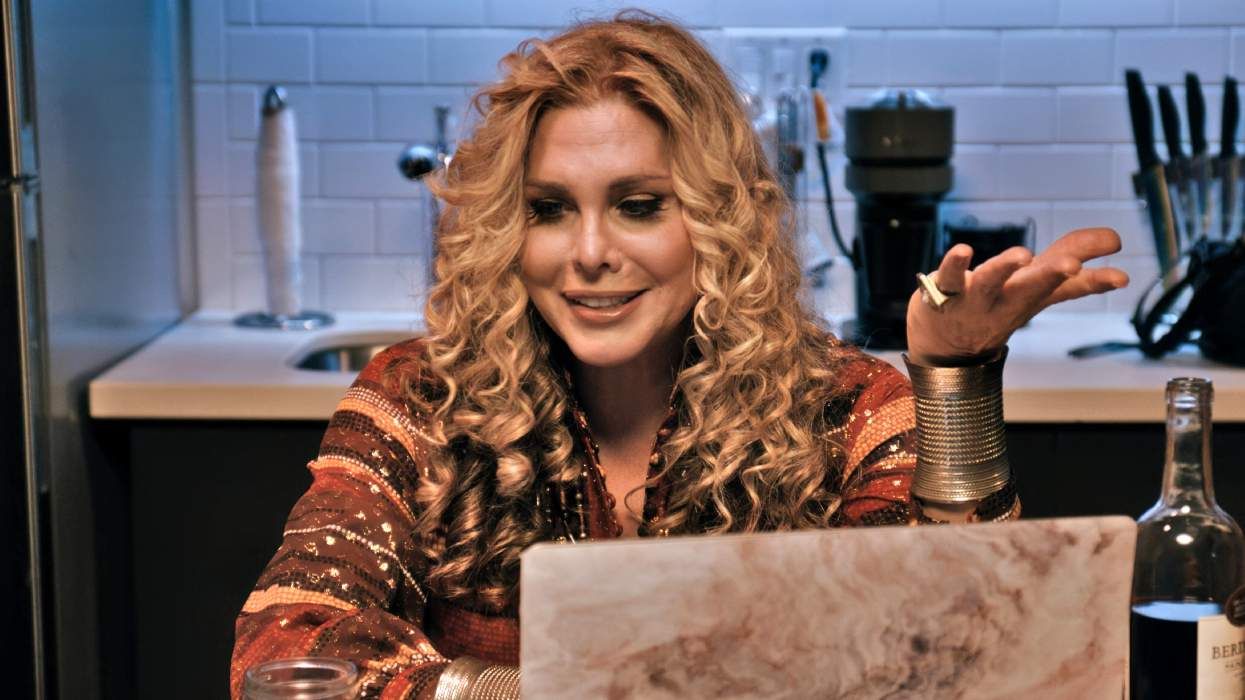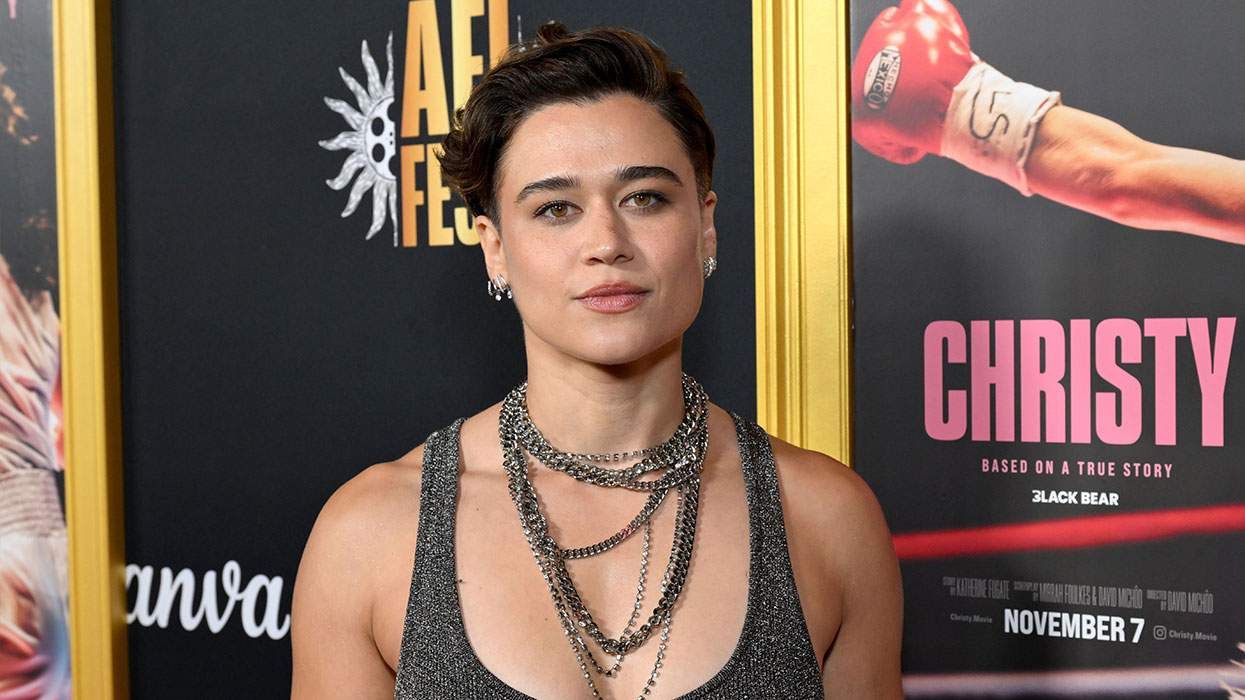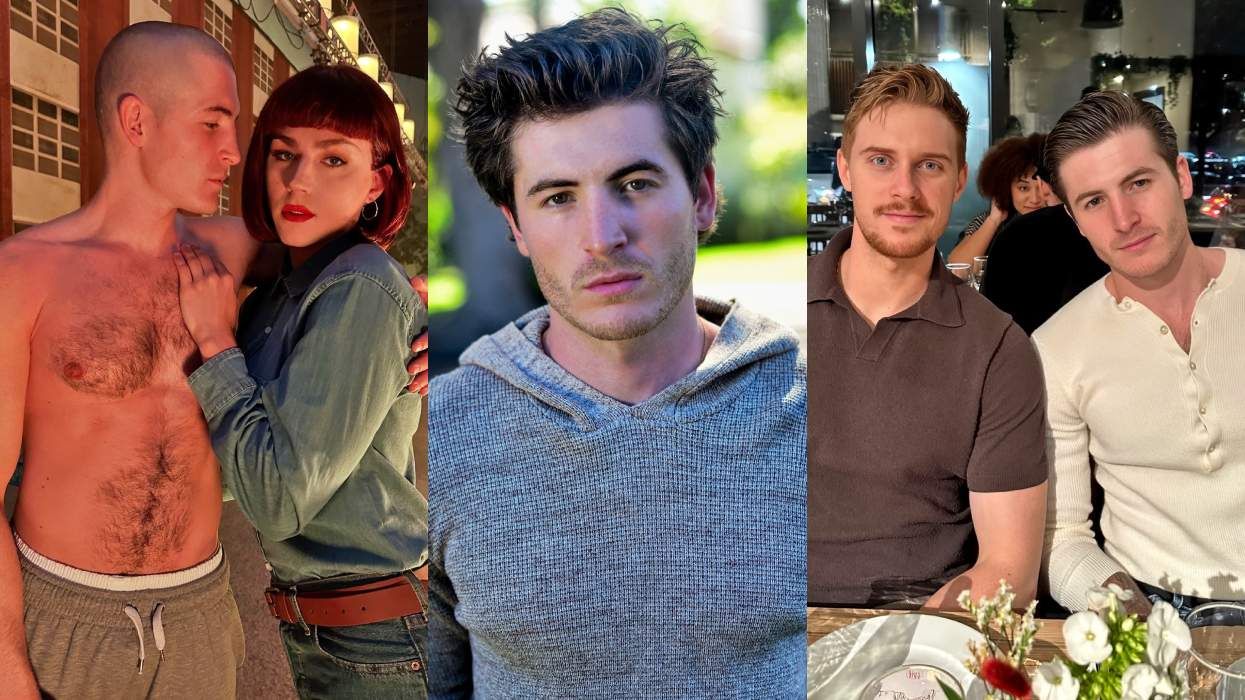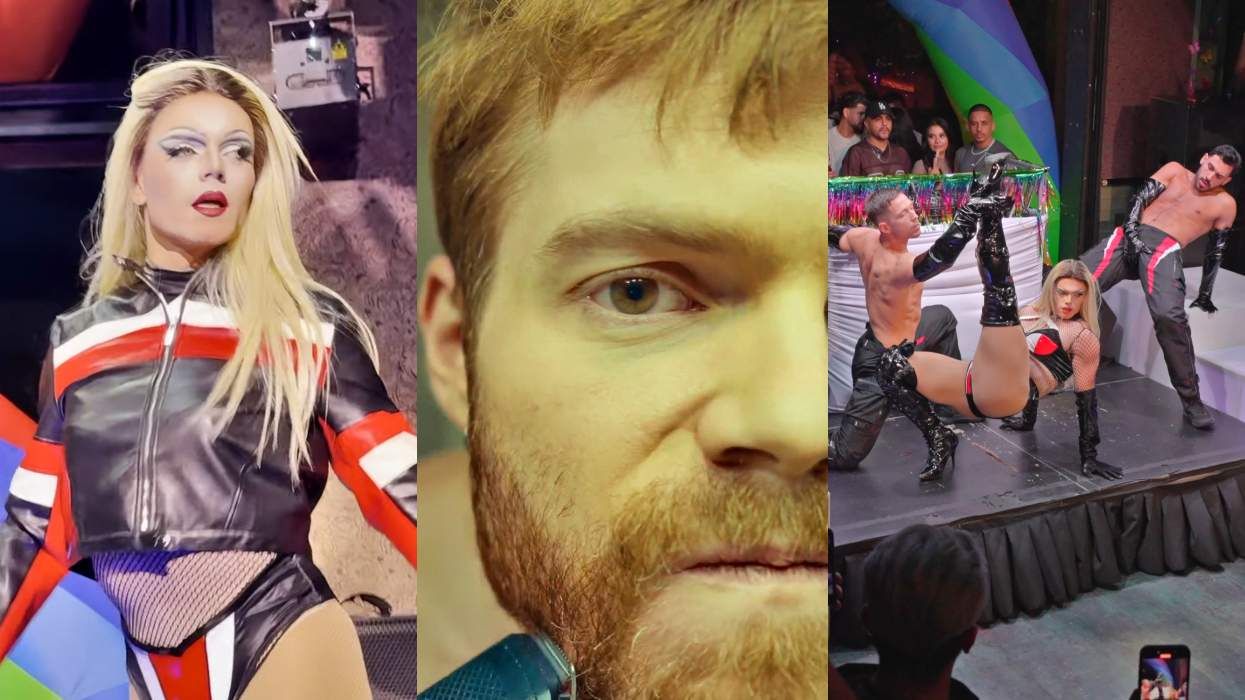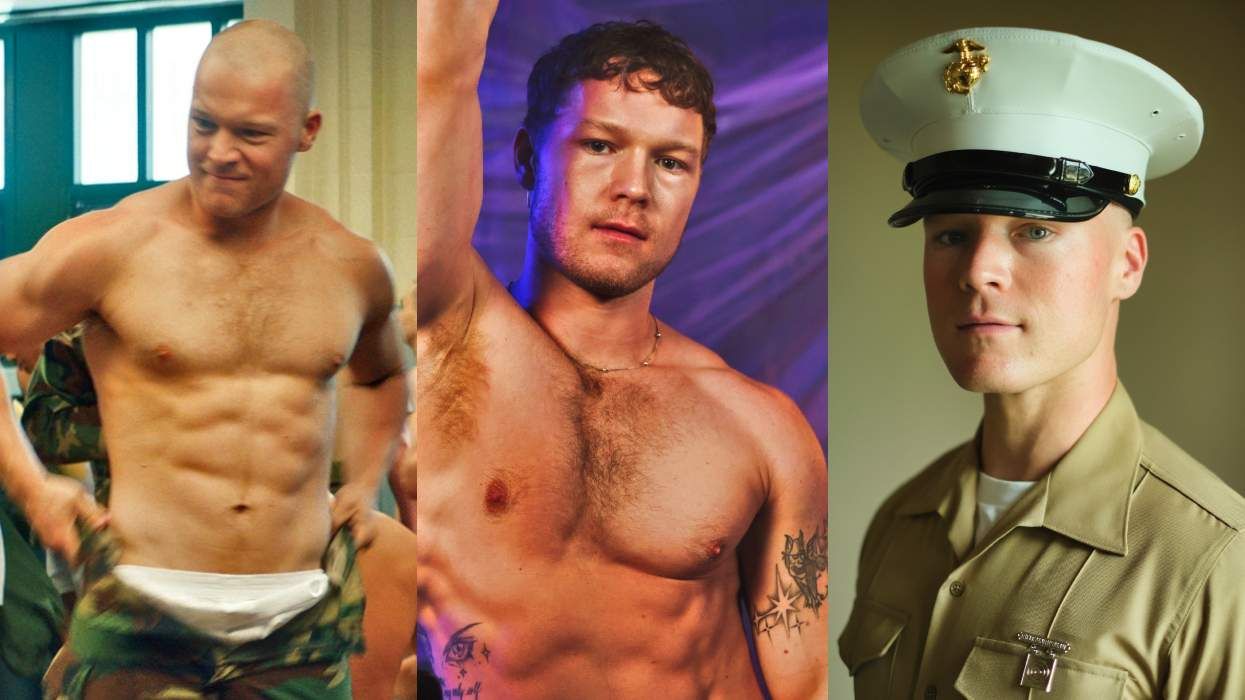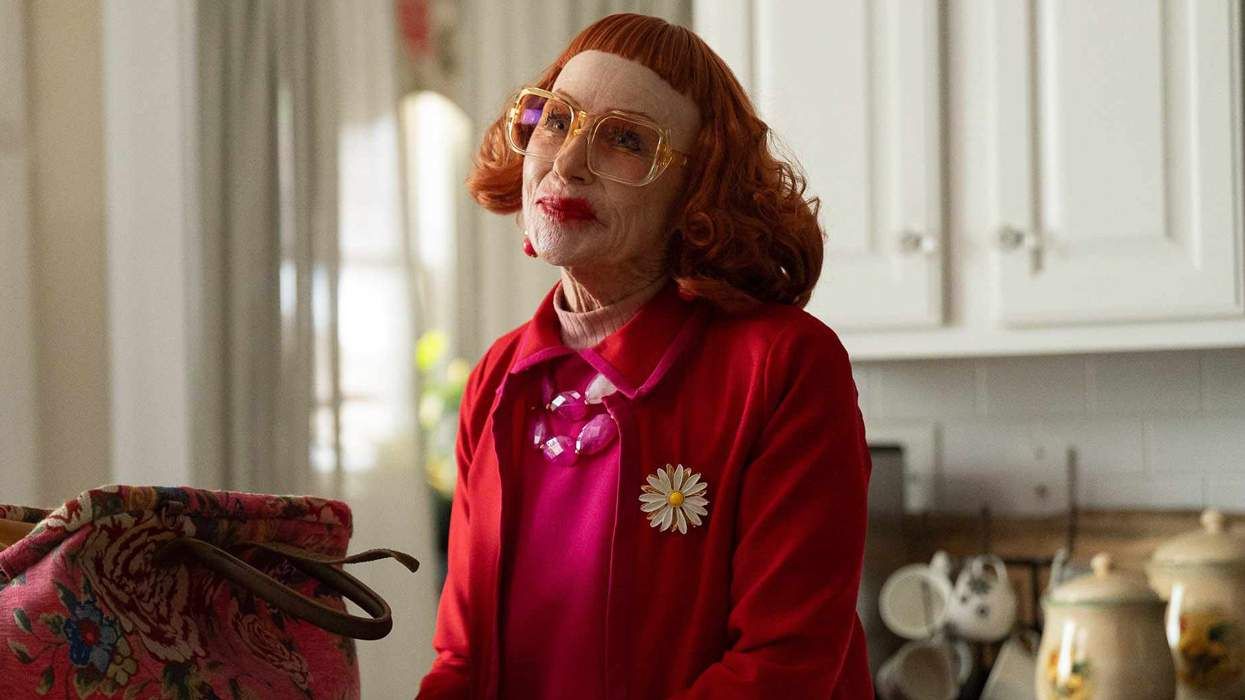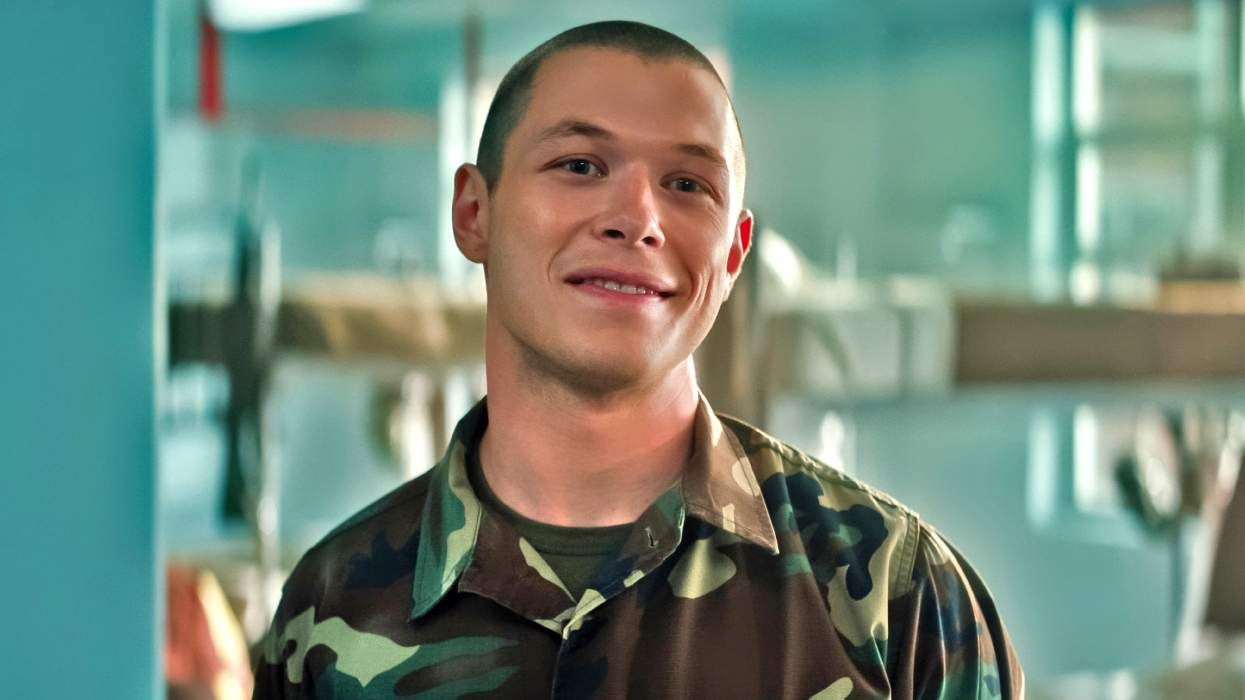Deaf culture is currently experiencing an unprecedented period of visibility and celebration--at least, one not seen in the decades since Marlee Matlin took home the Best Actress Oscar in 1986 for her role in Children of a Lesser God. On TV, Nyle DiMarco has brought the deaf community to primetime as a leading competitor on the current cycle of America's Next Top Model, sparking mainstream interest in American Sign Language (ASL). Jamie Clarke, a deaf British soccer player, has raised visibility on the field and billboards as a model for Kenneth Cole. Then there's the Broadway revival of Spring Awakening, the contemporary classic that made stars of Jonathan Groff and Lea Michele when it debuted on Broadway in 2006, which has been reborn as a bilingual ASL-English production by the company Deaf West.
Set in 1890s Germany, the show revolves around a group of youth struggling to come into their own, both intellectually and sexually. As two of the show's performers, Josh Castille and Daniel Stewart explain that the relationships between the young people and the adults in their lives closely parallels the struggles of the deaf community, making for a powerful and fully-conceptualized production. Castille, who is deaf, plays the role of Ernst, the innocent character who happily falls for the charms of Hanschen (Andy Mientus). Stewart, who is hearing, is also Ernst. He voices and sings the part that Castille acts and signs, a scenario repeated for most of the characters in Deaf West's production. It's a concept that not only shines the spotlight onto the deaf actors, but illuminates the relationship between deaf actor and hearing, between body and voice, in a way that offers deeper insight into the characters themselves.
With roughly two months left of the production's limited run, Out sat down with Castille and Stewart (with the help of ASL interpreter Candace Broecker Penn) to chat about their experience. We discussed the process of creating a character together, audience reactions, the similarities between growing up deaf and gay, and even the adorable characteristics of sea otters.
Out: Had you two seen Spring Awakening before being cast in it?
Daniel Stewart: He hadn't. I had, a lot. I'd seen it three or four times.
Were you familiar with the show before getting involved, Josh?
Josh Castille: I'd heard about it through Glee--when Jonathan Groff joined, I saw that he and Lea Michele had been in this show together. So I got the CD and listened to it, but I couldn't understand what they meant..."Mama who bore me, mama who gave me," was like, I don't understand it; it's so weird. I don't like it. I tried to watch it on YouTube, but it's not captioned, so I just couldn't get into it.
I went to school at Gallaudet University in Washington, D.C., and the theater program encouraged me to audition for this show with Deaf West. I saw it was Spring Awakening and I was like, I don't understand! Why is it so amazing? The thing was, with a Deaf West show, I'd actually be able to perform a full role, not just act as an interpreter on the side or have a small role. I could have an actual role, a professional role.
Now that you've both been involved in the show, what is it about Spring Awakening that lends itself so well to a bilingual production?
Stewart: Well, I'd always wanted to do Spring Awakening, but not until I felt it was fresh--everything I'd seen felt like it was emulating the original in some way. So when Deaf West announced it, my very first thought was this show is perfect for Deaf West because the show is about miscommunication, that barrier between adults and children, how everything gets lost in translation. I was excited from the outset, because I knew this was going to be something special.
Castille: It works well because the children in the show are underprivileged. They're oppressed. They're trying to make the best of a world that keeps saying no, and that's deafness! I want to take a driver's lesson class. Can't. No interpreter, they won't provide one. Everything is no no no, and it's frustrating. This show is exactly that: "No, you can't play with boys. No, you can't go in the woods. No, you can't can't can't." So I think it works because it's not just a lingual thing, it's also a cultural thing, it's also about discovering identity.
Stewart: That's what I think is so beautiful about this show. It's everything that's still happening today, people getting told no, people having to fight for simple human rights. The language is so poetic, and the movement of the body is so poetic, and the lyrics are quite esoteric--you really have to think about them long after to fully understand--and I think that's what lends itself so well. By signing the lyrics, we can actually express how it feels, what it looks like.
Castille: And a lot of deaf education is still behind, a lot of stuff isn't happening. I've gone to school with kids who didn't know how to put in a tampon, didn't know how to put on a pad, because their parents haven't communicated, their parents don't know sign. In the show, Wendla's mom says, "What have you done?" [after learning her daughter had become pregnant] and she said, "Truly, I don't know! You never told me!" This show resonates with that aspect of the deaf community. I feel like so many groups can connect the idea of not being understood--
Stewart: Like people who are wheelchair bound! The fact that Ali [Stroker] is the first person on Broadway in a wheelchair baffles and astounds me, because I've seen roles on Broadway for people who are wheelchair bound. Why is there this willingness to show disability, but not actually having the people who are going through the disability represent it? I'm so blessed and honored to be in a show that not only wasn't written specifically for deaf actors--
Castille: It was written by a white, able-bodied man.
Stewart: Yes, and within a play written with an able-bodied mentality, we're showing that you can take a person of disability, or people of disability, and they can kill it. Their performances can be just as beautiful and just as layered. I love that.
Related | Must See: Deaf West's Broadway Revival of Spring Awakening
Do you have family members who are deaf?
Stewart: No, not a single one.
Castille: And that's the power of theater right there. I can yell at someone all day, I can talk with them, I can debate with them all week, all year--this show is allowing people to understand things that I've been trying to explain my whole life.
Within the the LGBT community, it's been an uphill battle working to make sure that trans and gay parts are being played by trans and gay actors. It's taken a long time to start--
Stewart: Well, it takes people to take a stand.
Castille: It takes people to take a step back.
Stewart: To take a step back and say, "This isn't my story. This is their story, and they're the people who are telling it." It took me a long time to learn that. But it seems to me that there's this new vanguard of the young people who want truth, who want authenticity out at the forefront. For me, having grown up with all the things that make a person privileged in society--whether it be white and male and straight, or whatever--it's so beautiful to be able to understand. It really is an honor just to be around these people who are truth tellers, who are getting the chance to share their lives and tell their story.
You hadn't met before the being cast for this role, what were your first impressions of each other?
Castille: I remember--he joined late--one day they told me he was going to be there. I walked in and saw him and I was like, Oh he's cute! And then we started talking and I was like, But he's so weird! So quirky! I kept asking people, "Is he gay?" I couldn't figure it out. After a while I realized he wasn't, he was just so open.
Stewart: I think a lot of people growing up feel like they have to wear their straightness on their sleeve, make sure people know they're not gay, but I don't do that. I don't feel I need to say that I'm a certain thing, because I'm just human, we're all just human. You know, people will ask me what it's like working with Ali, who's in a wheelchair, and I'm like, "I forget that she's in a wheelchair!" I just look at her like she's a person, I just look at her as Ali.
Castille: I could say the exact same things about deaf people, so I'm not going to. But I will say, growing up, I kind of always knew I was gay, but I also always knew I was deaf. I would always tell people I was deaf, but not always that I was gay, I just was. So when I came out when I was eight, I was like, "If you can accept me being deaf, then this perfect child image is already gone, so you can accept me being gay."
It's interesting because, in deaf studies class, they talk about how deaf people and gay people have a very similar experience, because deaf people are usually born to hearing parents, people who don't know sign, and gay people are usually born to straight parents, so they don't have connections with their parents in that way. I have hearing parents, I have a hearing family, also a very straight, Republican, white, Christian, conservative family, and I'm the complete opposite. God just decided to pull me out and shit on me, or put me on a pedestal--[laughs] I'm not sure yet.
From left: Castille, Andy Mientus, Stewart | Photo by Joan Marcus
In the show, a lot of parts are split between a hearing and a deaf actor. Watching the way that the two actors interact, the little intimacies, is really beautiful, and it's really effective. How did the two of you come together to become Ernst?
Castille: I'm naturally a very affectionate person, I'm very, cuddle cuddle cuddle, and he was fine with that. We pick each other up a lot, we hug each other, and we started to realize that those are marks of innocence and youth. So we talked about, at what age did we stop holding hands with boys, and girls stop holding hands with girls? When do we start to feel like it's not appropriate, and wouldn't it be interesting to see that continue, but with your own private imaginary friend? So as we continued to develop Ernst, I think I realized that he [Stewart] was my imaginary best friend, and I think that dynamic really fits. Ernst is one of the happiest in the show, he's one that has the most understanding of self, because he's in touch with his best friend, his subconscious, his voice. Martha, who is molested, she suppresses a lot, and so she and her voice are never side by side, they're always separate, apart. Ernst, being innocent and sweet and loving in a world that doesn't allow it, he turns that love to himself, his imaginary friend.
Stewart: I realize I didn't answer before what I thought of Josh when I first met him. I was floored, because I was like, How did they find the most perfect person in the world to play Ernst? How did he just happen into their laps? So I felt a great honor and privilege to be able to explore with him and, from the very outset, I wanted Josh and myself to creating together, from the ground up, to be very open and honest. It was so amazing having someone with me, by my side every step of the way, to explore with, to commiserate with and talk about death and love and all our experiences, what Ernst's home life would be--normally, you don't get a sounding board, normally you just have yourself. It's amazing to build a role with another person. Both of us were trying to bring out what's beautiful in the role, not necessarily trying to bring out some special thing about ourselves. I think we've always been fighting for Ernst, and I think that's what makes our relationship special.
We like to ask people what their spirit animal would be. Since you guys have come together to become the same person, I want you to answer for each other.
Castille: Oooh. Spirit animal for him... I don't know why, but platypus comes to mind.
Stewart: Platypus?
Castille: I say platypus because they're a mix of everything, and that's what you are. You're everything in one person--in a good way. Platypuses are ugly, you're beautiful. No wait! A sphinx. That's it. A mix of all these fierce fabulous things in one animal. A sphinx is better than a platypus.
Stewart: I know this sounds weird, but I'm thinking sea otter. There's something so beautiful in the way that otters connect with other otters. They hold hands, float together, will help each other crack open and eat their food... and they're so damn cute.
What have been some been some stand-out reactions that you've had to the show?
Stewart: Any person that comes to this show and leaves wanting to learn sign and get closer to the deaf community in some way, that's just absolutely incredible. I think we're bringing a whole new level of awareness, and we're showing people that this community is heard and is beautiful and deserves a lot more than it gets most of the time.
Castille: I'm going to let the interpreter voice for me right now [he had been speaking himself up to this point, with the interpreter translating our conversation into ASL for him], because I'm feeling very emotional about this. I've gotten a lot of letters from young people who are gay or transgender or just simply young, and they've said that this show has saved their lives. That, for me, is unbelievable. So many of them say that to see each of the characters on stage, and to realize that, I may be deaf, but I'm still going on, my life goes on, it makes them think about how they can go on too. At first, I didn't realize how much people were saddened in the world. I've never felt sad--I mean, yes, sadness at times, but to feel that sadness where you might want to alienate yourself from everyone... I've always found someone to hug, or found someone to connect to. To know that there are people who feel that alone, who feel that profound sadness, who then come see our show and find a candle to light in their life, to hold onto for themselves, that makes me feel amazing.
Stewart: To have representation of what they're feeling on stage in front of them, it allows them to feel like they're not alone, that they do have a purpose. If this ragtime group of people can get together and make something so meaningful, all of us from different places, most of us who are hearing didn't know sign, and most of the deaf people had certainly never been in a musical! I think we're living proof that you can really get through anything if you put your mind to it.
Castille: I also met a fan, a woman who was crying after the show, who told me that her sister had killed herself, because her sister was a lesbian. To feel that amount of bullying, that would cause a person to kill themselves, to not be able to find a candle in the darkness of their world, I cried with her! We just stood there, and we cried and we hugged.
Stewart: At our opening night party, a cast member from Hamilton said that, watching the show, he felt that we were all stars. He said that our show reminded him of when he was working on a cruise ship. Out on the water, in the middle of the night, you'd go outside to be alone and there was this clean blackness that overcame everything. You were just a little speck, and you'd look upwards and see the stars above that were kind of like beacons of hope and light. He said our show was like that, that he had the feeling of looking up at the stars. That's why most of us get into this in the first place. Art is wanting to create something that truly can touch someone, or change somebody's life or view. Musicals don't often have that power, and so to hear that people feel like they could go on living because of our show, they they feel like they've been heard and understood... [Looking over to Castille and seeing that he was crying, Stewart also started tearing up] That's why I do this, because I want to touch people in the way that I've been touched. [Wiping away a tear with a laugh] We're gross.
Spring Awakening continues its run at the Brooks Atkinson Theatre through January 24, 2016.


